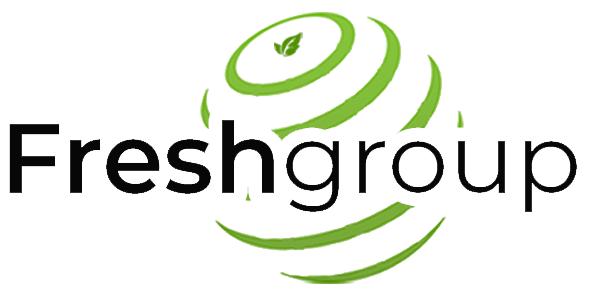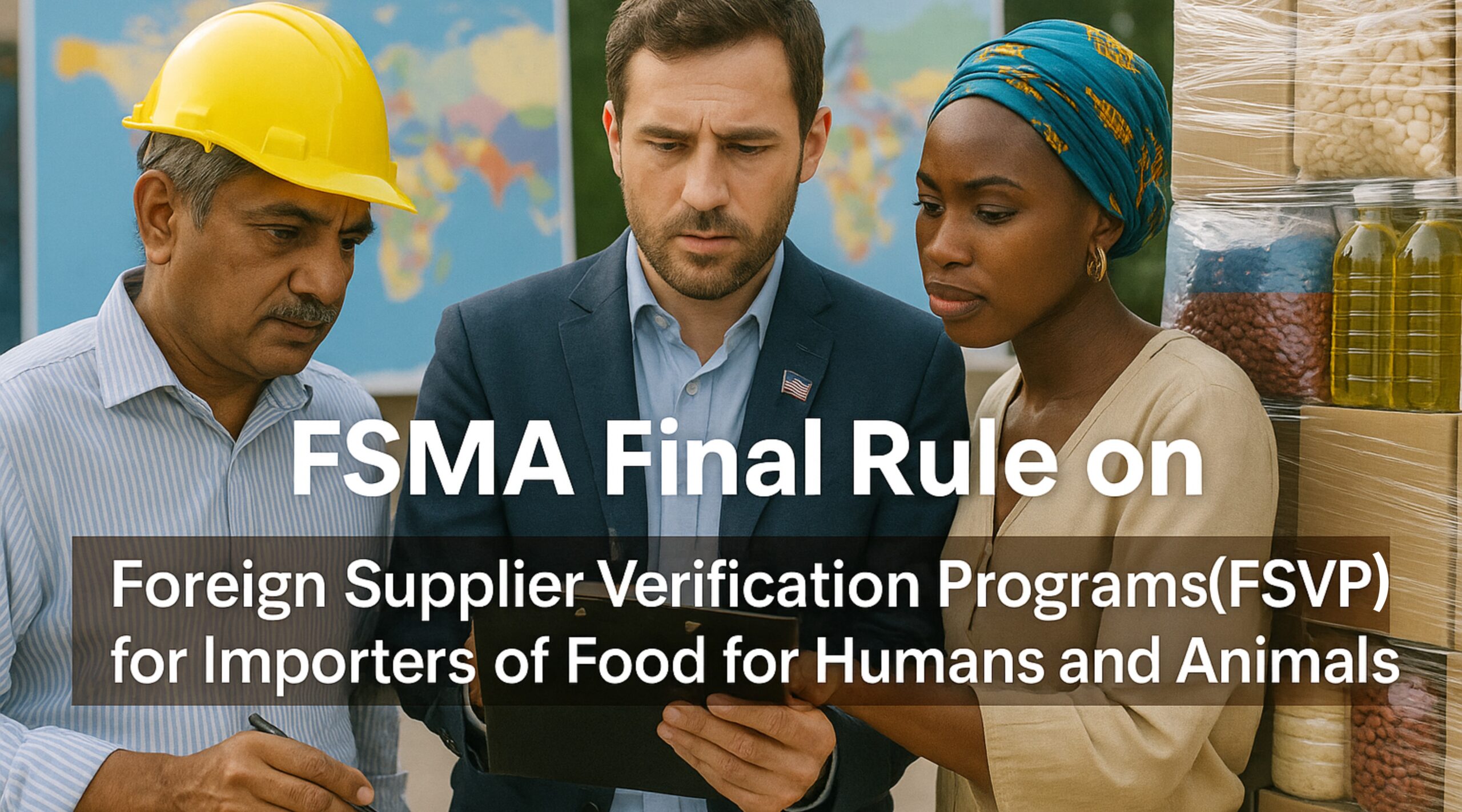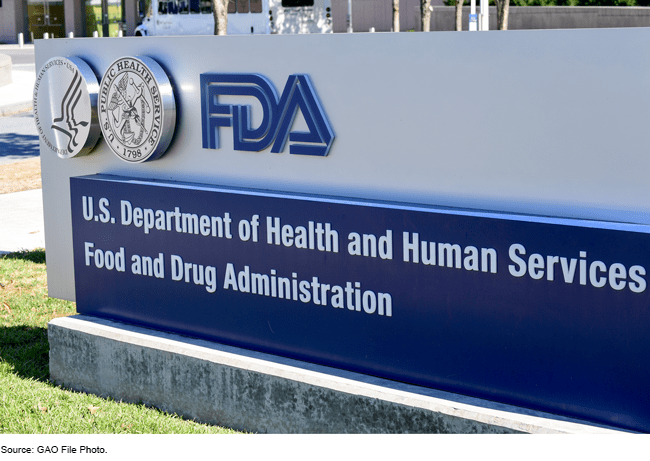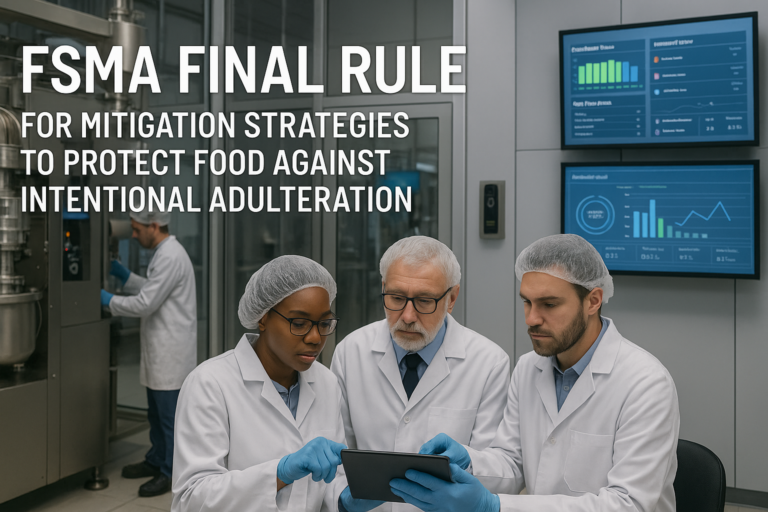Overview
The FDA’s Final Rule on Foreign Supplier Verification Programs (FSVP) is part of the Food Safety Modernization Act (FSMA), designed to ensure that food imported into the United States meets the same safety standards as domestically produced food. This rule, published on November 27, 2015, and effective as of January 26, 2016, requires U.S. importers to conduct risk-based verification activities to confirm that:
- Food is produced under conditions that ensure the same level of public health protection as required under FSMA’s preventive controls (Section 418) or produce safety (Section 419) rules;
- Food is not adulterated, as defined in Section 402 of the Federal Food, Drug, and Cosmetic (FD&C) Act;
- Food intended for human consumption is not misbranded with regard to allergen labeling (Section 403(w)).
Key Requirements
- Who Must Comply with FSVP?
An importer, under FSVP, is defined as the U.S. owner or consignee of food being imported. If there is no U.S.-based owner or consignee, the responsibility falls to a U.S. agent or representative of the foreign supplier, as documented in a signed agreement.
FSVP applies to most food importers, but there are exemptions and modified standards for certain entities, outlined further below.
Core Responsibilities of Importers
Importers must:
- Identify known or reasonably foreseeable hazards for each food product.
- Evaluate the level of risk posed by each food based on its hazard analysis and the supplier’s performance.
- Approve foreign suppliers based on this risk evaluation.
- Determine and conduct appropriate verification activities.
- Take corrective action when necessary.
- Maintain written procedures and documentation to show compliance.
- Develop and follow an FSVP for each unique combination of food and supplier.
Note: Separate FSVPs are required for each supplier of the same food, and for each food from the same supplier.
Special Cases: Importers Who Are Also Manufacturers/Processors
If the importer is also a manufacturer or processor and is in compliance with FSMA’s supply-chain program rules, they may be exempt from most FSVP requirements—especially if they control the hazards themselves or rely on customers who do so, with appropriate disclosures and written assurances.
Hazard Analysis
Importers must analyze potential hazards in each imported food, using scientific data, illness reports, and other credible information. Hazards may be:
- Biological (e.g., pathogens, parasites)
- Chemical (e.g., allergens, pesticides, drug residues, radiological contaminants)
- Physical (e.g., glass, metal)
The analysis must evaluate:
- The likelihood and severity of hazards if not controlled
- Product formulation, production environment, ingredient sourcing
- Transportation, storage, labeling, and intended use
- Sanitation and hygiene practices
Importers may rely on third parties to conduct the hazard analysis, but must review and assess the findings themselves.
Risk and Supplier Evaluation
Importers must evaluate both the risk of the food and the foreign supplier’s performance by considering:
- The hazard analysis results
- Who controls the hazard (e.g., the supplier or their suppliers)
- Supplier’s food safety systems and practices
- Their regulatory compliance and history of corrective actions
- Other relevant factors like storage and shipping practices
Importers may rely on third parties to conduct evaluations, but they remain responsible for reviewing and verifying the information.
Supplier Verification Activities
Importers must verify that suppliers are producing safe food. Activities may include:
- Annual on-site audits, especially when the food presents a SAHCODHA (Serious Adverse Health Consequences or Death to Humans or Animals) hazard
- Product testing and sampling
- Reviewing supplier food safety records
Alternative methods are allowed if justified in writing and proven effective.
Corrective Actions
If a foreign supplier is found to produce unsafe, adulterated, or misbranded food, the importer must take timely corrective action. This could include:
- Reassessing the supplier
- Implementing additional controls
- Discontinuing the supplier relationship until issues are resolved
Exemptions and Modified Requirements
Dietary Supplements:
- Ingredient/component importers meeting existing dietary supplement CGMPs may be exempt from most FSVP requirements.
- Finished product importers must generally comply, except for hazard analysis.
Very Small Importers & Suppliers:
- Defined as having under $1 million (human food) or $2.5 million (animal food) in annual sales, averaged over three years.
- May follow modified FSVP rules, such as relying on written assurances rather than full verification.
Small Foreign Suppliers Eligible for Modified Requirements Include:
- Qualified facilities under FSMA’s preventive controls
- Farms exempt from produce safety rule
- Small shell egg producers (fewer than 3,000 hens)
Exempt Products Include:
- Juice and fish regulated under HACCP
- Foods for research, personal use, or future export
- Alcoholic beverages
- LACF (Low-Acid Canned Foods) where microbiological hazards are already regulated
- USDA-regulated meat, poultry, and eggs
Unique Facility Identifier (UFI) Requirement
The final FSVP rule requires that every importer must provide the FDA with:
- Their name and email
- A UFI, such as a DUNS number (Data Universal Numbering System), for each line entry of imported food
- The FDA no longer accepts the placeholder us of the entity role code “UNK” for unknown facility identifiers in lieu of a DUNS number. Therefore, as of July 24, 2022, FSVP importers must comply with the requirement of providing a unique facility identifier recognized as acceptable by FDA (i.e., DUNS number) when filing entry with CBP.
Compliance Dates by Importer Type
Compliance timelines vary based on:
- Size of the foreign supplier
- Importer type
- Applicable FSMA rules (Preventive Controls or Produce Safety Rule)
Examples:
- Most standard importers: May 30, 2017
- Importers of food from small human food suppliers: March 19, 2018
- Animal food suppliers (small businesses): March 19, 2018
- Produce safety rule: Compliance dates range from July 26, 2018 to July 27, 2020 based on business size
- Sprout producers under qualified exemptions: July 29, 2019
A full compliance date table is available from the FDA based on importer and supplier classifications.
Source: United States Food and Drug Administration (FDA)
Reach out to Fresh Group Food Safety And Quality Consulting for any inquiries related to food quality and safety.




